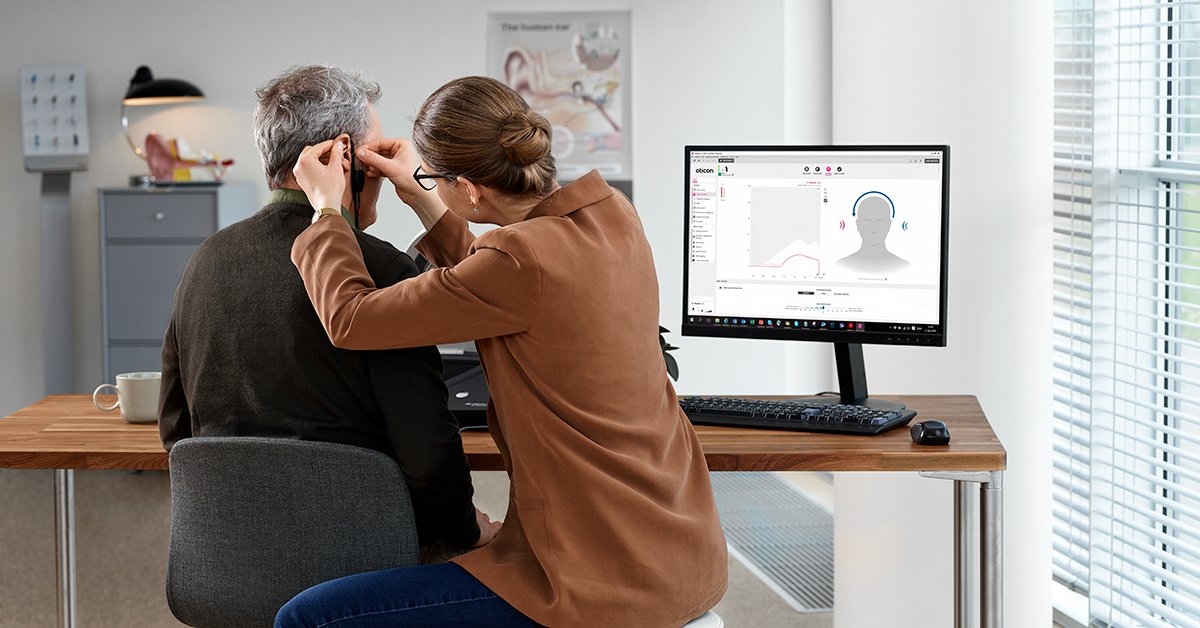Can hearing loss be reversed?
Hearing loss is a health problem that impacts the lives of millions of people. It’s no wonder there are so many questions about whether it’s possible to regain hearing. But often, it’s not as simple as taking a pill or a quick procedure. In this blog post, we’ll separate the fact from fiction and explain the ways a hearing loss can be restored.
Which types of hearing loss can be reversed?
The most common hearing loss is sensorineural. It’s the result of damage to the inner ear or the auditory nerve pathway, most commonly by natural aging or exposure to loud sounds, and it’s generally permanent. This means that in most cases, it can’t be reversed. But it can be treated – the sooner the better.
Conductive hearing loss is less common and is caused by an obstruction or other abnormality in your outer or middle ear preventing sound waves from travelling through it. It can be permanent or temporary, and in some cases it can be cured completely.
If you’re not sure if you’re suffering from a hearing loss, you can always take our free hearing test online. It’s quick and easy to do. No online hearing test can replace a full hearing assessment by a hearing care professional. If you have some concerns about your hearing, we always recommend you make an appointment with a hearing care professional.

Surgery for hearing loss
While any operation is stressful and presents certain risks, many people with a hearing loss are willing to try surgery if it means they can reverse hearing damage. Some common procedures are:
You may have heard of cochlear implants before. They work by sending electrical impulses to the auditory nerve, which can be translated by the brain as meaningful sound.
It can sound like a great solution, but the procedure is invasive and expensive, and, despite being widely known, is reserved for a small number of people who meet a set of strict criteria – one of which is a previous use of hearing aids with no improvement.
This surgical procedure is most often performed to treat otosclerosis. Otosclerosis is a condition where the stapes (a bone in the middle ear) gets fixed in position, resulting in a conductive hearing loss. A stapedectomy will insert a prosthesis to allow for the sound waves to travel to the inner ear.
- Insertion of ear ventilation tubes
This surgery inserts ventilation tubes to relieve pressure behind the eardrum. It’s typically used to relieve a fluid build-up from infection or anatomy, most commonly in children.
Can medicine reverse a hearing loss?
Imagine if there was a magical little pill to cure what ails you? While we’re not there yet with hearing loss, there have been some interesting developments in the use of pharmaceuticals.
One study has shown sea anemones might be able to restore damaged inner ear hair cells in micei, while another discovered similarities between the cells in the intestines and those in the cochleaii. Also, some hearing loss, including sudden hearing loss, can sometimes be treated with steroidsiii.
These developments are exciting for the scientific community, but if you’re looking for a fast cure, you could be waiting a while.

How can you reverse a hearing loss?
In reality, only a select few hearing losses can be restored fully or “cured.” The majority are treated with hearing devices.
Although hearing aids can’t restore your hearing, the innovative technology in Oticon’s range can treat the hearing loss, allowing you to hear better again, as well as support your brain’s health.
A permanent hearing loss cannot be completely cured, but it is still important to treat it and monitor it for any changes as it may get worse. By visiting a hearing care professional, you’ve already started the journey towards better hearing.
Visit your local hearing centre today or request a call from a hearing care professional who can help assess your hearing loss and the best course of action for you.
-----------------------------------
iTang, P-C., Smith K. M., and Watson, G. M. “Repair of Traumatized Mammalian Hair Cells via Sea Anemone Repair Proteins.” Journal of experimental biology 219.Pt 15 (2016): 2265–2270. Web.
iiLi, J. et al. “Mechanistic Basis of Organization of the Harmonin/USH1C-Mediated Brush Border Microvilli Tip-Link Complex.” Developmental cell 36.2 (2016): 179–189. Web. and Crawley, S. W. et al. “ANKS4B Is Essential for Intermicrovillar Adhesion Complex Formation.” Developmental cell 36.2 (2016): 190–200. Web.
iiiHara, Jared H et al. “Oral and Intratympanic Steroid Therapy for Idiopathic Sudden Sensorineural Hearing Loss: Steroid Therapy for Sudden Hearing Loss.” Laryngoscope investigative otolaryngology 3.2 (2018): 73–77. Web.